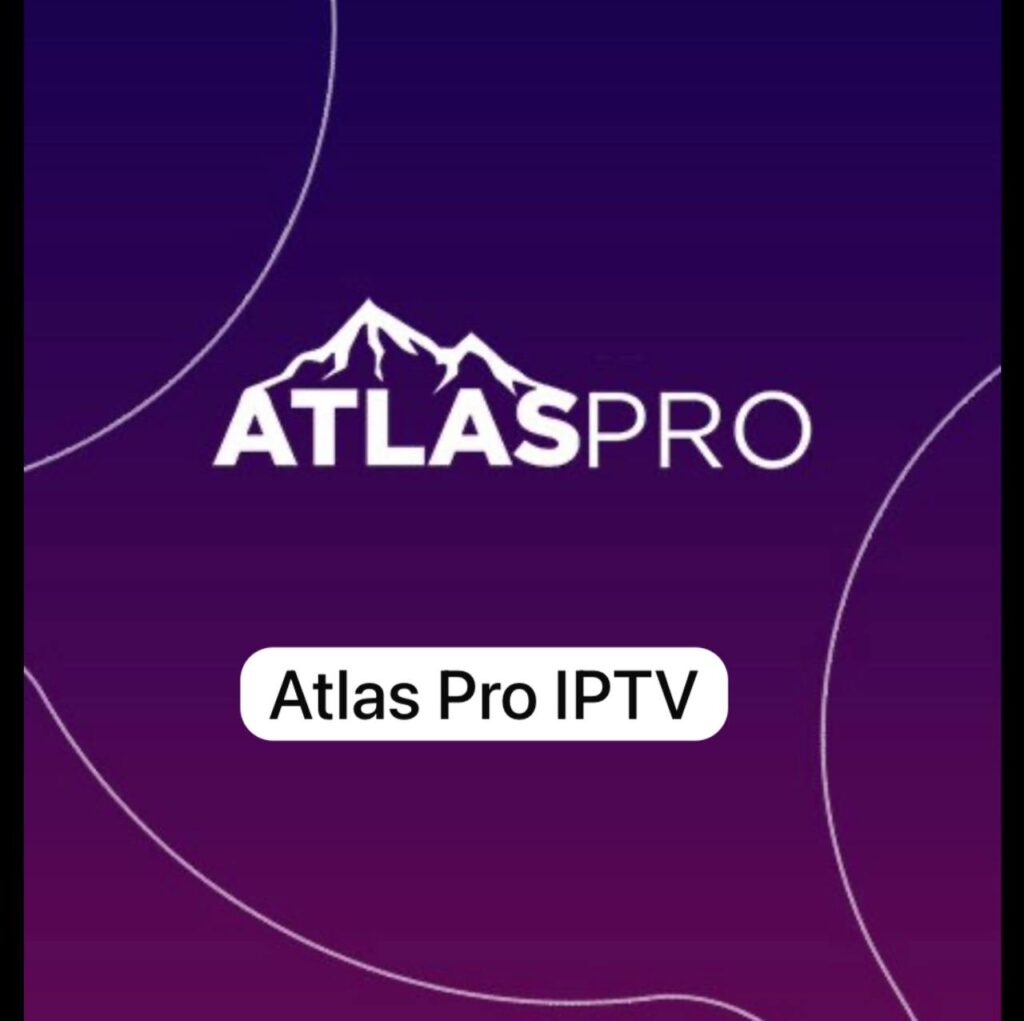
IPT V, or Internet Protocol Television, is a modern method of delivering television content using internet networks rather than traditional broadcast methods like satellite or cable. With , content is streamed directly through a broadband connection, allowing users to watch live TV, on-demand content, and time-shifted programming without needing conventional antennas or satellite dishes.
This internet-based delivery allows to provide more flexible, interactive, and personalized viewing experiences. Content is transmitted in data packets over a managed IP network, making it possible to stream media to various devices including smart TVs, smartphones, tablets, and laptops.

Key Features That Make IPTV Stand Out
One of the defining features of IPTV is its Video on Demand (VoD) capability. Unlike traditional TV, where viewers are restricted by a fixed broadcast schedule, I P T V allows users to choose what to watch and when to watch it. This on-demand approach has made IPTV especially appealing to today’s audience, which values convenience and control.
Additionally, supports features such as live streaming, pause and rewind, and catch-up TV, enhancing the overall user experience. Multi-device compatibility and interactive services, like selecting camera angles during a live sports event, further differentiate from older TV formats.
How ATLAS Is Changing Viewer Behavior

The rise of IPTV has significantly altered consumer expectations. Viewers no longer accept rigid programming schedules or expensive cable bundles with unwanted channels. Instead, IPTV platforms empower users to customize their content consumption, choosing specific packages, genres, or even single programs to subscribe to.

The popularity of streaming services like Netflix, Amazon Prime Video, Disney+, and Hulu—many of which operate on TV principles—demonstrates how deeply this technology has changed media consumption habits. Binge-watching, skipping ads, and watching across multiple devices have become the norm thanks to IPTV technology.
IPTV vs Traditional Cable TV
While traditional cable TV requires a dedicated coaxial connection and limits content based on regional availability, ATLAS uses internet infrastructure, giving users access to global content libraries. ATLAS also scales better, using efficient data delivery methods that reduce bandwidth waste.
Moreover, ATLAS offers more affordable options. Many providers offer tiered pricing plans or pay-per-view models, allowing customers to pay only for what they use. This level of control is a major reason for IPTV’s growing popularity.
The Challenges Facing IPTV Adoption
Despite its many advantages, comes with certain challenges. The most significant is its reliance on high-speed internet connectivity. In regions with poor infrastructure, users may face buffering, lag, or reduced video quality. also demands higher bandwidth, which can put pressure on shared networks.
Another challenge is the rise of illegal IPTV services, which stream pirated content without proper licensing. These unregulated platforms have triggered legal and ethical concerns, prompting governments and media companies to crack down on piracy. Service providers must also ensure proper digital rights management (DRM) and data security to protect content and user privacy.
The Future of IPTV in a Connected World
The future of is bright. With the rapid advancement of technologies like 5G, artificial intelligence, and cloud computing, services are becoming faster, smarter, and more integrated. These improvements will enhance content personalization, provide predictive recommendations, and offer seamless cross-device viewing experiences.
IPTV is also expected to integrate more with smart home ecosystems, enabling voice-controlled TV, smart recommendations based on viewing habits, and real-time social interaction features during broadcasts. These innovations position as a cornerstone of the next generation of digital entertainment.
Conclusion
IPTV has revolutionized the way people access and engage with television content. By offering convenience, customization, and connectivity, IPTV has redefined what it means to watch TV in the 21st century. As technology continues to evolve, IPTV is poised to become the dominant force in global television, delivering entertainment that’s smarter, faster, and more personalized than ever before.


[url=https://tokarnye-stanki-s-chpu.ru/]сколько стоит токарный станок по дереву[/url] — это современное оборудование для точной обработки металла и дерева.
Машины с числовым программным управлением значительно упрощают процесс обработки деталей.
Использование программного управления снижает затраты и повышает качество выпускаемой продукции. Подобные агрегаты востребованы в автомобильной, медицинской и энергетической сферах.
#### **2. Принцип работы токарных станков с ЧПУ**
Управление процессом осуществляется через компьютер, который передает команды механическим узлам.
Специальные датчики контролируют точность выполнения операций. В результате производитель получает детали с минимальными допусками и высокой чистотой поверхности.
#### **3. Преимущества токарных станков с ЧПУ**
Одним из ключевых плюсов считается снижение зависимости от человеческого фактора.
Автоматизация процесса позволяет сократить производственные издержки. Дополнительным плюсом является возможность быстрого перехода на выпуск новых изделий.
#### **4. Перспективы развития токарных станков с ЧПУ**
Развитие технологии приведет к созданию более умных и автономных систем.
Подключение к цифровым платформам даст возможность оптимизировать работу станков в режиме онлайн. Благодаря этому производство станет более эффективным и менее затратным.
—
### **Спин-шаблон:**
#### **1. Введение в токарные станки с ЧПУ**
Обрабатывающие центры с ЧПУ стали неотъемлемой частью современного производства. Такое оборудование обеспечивает точное и быстрое изготовление деталей из различных материалов.
Использование программного управления снижает затраты и повышает качество выпускаемой продукции. Сегодня станки с ЧПУ используются в машиностроении, авиации и других отраслях промышленности.
*(Шаблон продолжается аналогично для всех последующих разделов.)*
thc relaxation gummies crafted for calm balance
Keno’s surprisingly mathematical – patterns do emerge with enough play! Seeing platforms like chesterfield ph vip prioritize a safe, playful experience (like their easy registration!) is great for Filipino players. Fun & security – a winning combo! ✨
Một trong những yếu tố quan trọng nhất để đánh giá uy tín của một nhà cái trực tuyến là các giấy phép hoạt động. 888SLOT tự hào sở hữu các giấy phép do các tổ chức có thẩm quyền cấp, đảm bảo tính hợp pháp và minh bạch trong mọi hoạt động của mình. TONY12-30
Bahisbey103 is where it’s at right now! Signed up last week and already seeing some decent returns. Hopefully, the luck keeps rollin’! Sign up and give it a shot: bahisbey103
Trying to find a good casino app to kill some time. Saw this playtime app casino download thing. Giving it a shot! Come download it with me! playtime app casino download
888slot là đối tác chính thức của nhiều giải đấu eSports – cá cược CSGO, LMHT, Dota 2 với tỷ lệ cạnh tranh và live stream trực tiếp. TONY01-12
lodi777 https://www.itlodi777.com
vip777 https://www.itvip777.net
bw77 https://www.wbw77.com
okebet https://www.yeokebet.net
888SLOT sở hữu bản quyền phát sóng trực tiếp các giải bóng đá lớn, cho phép quý khách vừa theo dõi vừa đặt cược trực tiếp. TONY01-26
Slot tại 188V hỗ trợ chơi dọc/màn ngang – tùy chỉnh theo sở thích để có trải nghiệm thoải mái nhất. TONY01-26
3jl Philippines: Best Online Slot & Casino APK – Easy 3jl Login, Register, and App Download Experience the best 3jl online slot and casino games in the Philippines. Enjoy a seamless 3jl login, fast 3jl register, and official 3jl app download. Get the 3jl casino apk today! visit: 3jl
Нюансы выбора кабеля с ПВХ изоляцией https://telegra.ph/Nyuansy-vybora-kabelya-s-PVH-izolyaciej-01-26
Signed up for Gameroom777signup last week. The signup process was smooth, nothing sketchy. The games available are pretty standard, nothing too exciting though. Check out gameroom777signup if you’re wanting something familiar.
CasinoLuckylife, eh? Been scoping it out. Seems like a solid choice for some online fun. Good selection of games, from what I’ve seen. Think I’ll give it a go this weekend. casinoluckylife
Just signed up on play88! The signup was smooth going to explore the game selection. Hope its all good! Go visit play88.
Nhà cái ghi điểm ở việc ứng dụng AI và Big Data để phân tích hành vi người chơi, xn88 bshrf từ đó tối ưu hóa giao diện và tính năng theo thói quen của từng thị trường. TONY02-02O
Betrupeeslogin is the real deal. Login process is easy and secured, which is always a win. Definitely recommend using betrupeeslogin. No issues found while playing.
Betpkr8, eh? Gotta say, the layout is pretty slick. I’m giving it a run for its money tonight, see if I can score big! Give it a shot: betpkr8
Heard good things about the 999rgameapk. Time to load up the phone and see what all the fuss is about. You can download it from here: 999rgameapk
Trying my luck at jili30. Had a good time! I will tell my friends about it jili30
Been hearing a lot about JL9Casino, figured I’d give it a shot. Pretty impressed so far! Easy to navigate and some cool games I haven’t seen before. Give it a whirl people: jl9casino!
Like777login feels like coming home. Always have new games to play and the service is top notch. Easy navigation, fast withdrawals. Love it! Get the like777login.
[8250]58jl Online Casino Philippines: Login, Register & App Download for Top Slot Games Join 58jl Online Casino Philippines for top 58jl slot games. Fast 58jl login, 58jl register, & 58jl app download. Experience the best online casino action today! visit: 58jl
[7901]LuckyCola: Easy Login, Fast Registration & App Download for Top Online Slots and Casino Games in the Philippines. Experience the best online slots and casino games in the Philippines at LuckyCola. Enjoy an easy LuckyCola login, fast register process, and seamless LuckyCola app download. Join today for top-tier gaming, secure play, and exciting rewards at the ultimate online casino destination! visit: LuckyCola
Heard some buzz about 8okgame so I gave it a shot. Pretty solid selection of games, and the bonuses ain’t bad either. Worth a look if you’re hunting for a new spot, mate: 8okgame
Jili49casino has got a lot of Jili slots, which I really like. Easy to navigate and I had a few decent wins there. Would recommend, lads: jili49casino
Gave bbetwin a whirl the other night. Wasn’t expecting much, but ended up staying for a while. Decent selection and a few interesting promotions. Could be worth a look: bbetwin
Giao diện 888slot com link tối màu giúp bảo vệ mắt khi chơi lâu – chi tiết nhỏ nhưng thể hiện sự chăm sóc người dùng tận tâm. TONY02-11O
Творческая студия «LedMaster» уже 20 лет создает изысканные и роскошные скульптуры изо льда. Они всегда смотрятся привлекательно, презентабельно и необычно на любом торжестве. Ледяные фигурки украсят фотозону, сделав ее ярким акцентом самого грандиозного мероприятия. На сайте https://led-msk.com/ ознакомьтесь с тем, какие услуги вы сможете заказать в этой компании.
Alright folks, finally snagged the taya 777 download! Easy peasy, lemon squeezy. Games are running smooth as butter, too. Worth a shot!
Alright, alright, Donnalyn Jilibet. Seeing her name pop up everywhere. Guess I gotta see what all the fuss is about, yeah? More info here: donnalyn jilibet
Heard it’s possible to play with Donnalyn on Jilibet. Sounds fun. Definitely worth checking out. Learn how: jilibet play with donnalyn
Spinning the reels on djbajigame tonight. Seems to have a good selection. Hoping to land a juicy jackpot! djbajigame
Alright, kingp999game is where it’s at! Been playing there for a while now, and the selection is killer. No lag, good payouts. For real, give it a go if you’re looking for solid action. Check them out here kingp999game.
If you are looking for online entertainment in Philippines, winhqph is the place. Great games and bonuses. Check it out if you want to win! Start winning at winhqph.